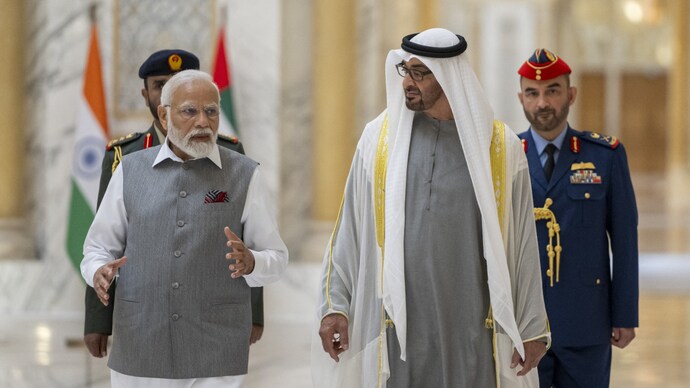The second Indian Institute of Technology (IIT) campus abroad will be established in Abu Dhabi as a result of an agreement signed between Indian and United Arab Emirates (UAE) authorities during Prime Minister Narendra Modi’s Saturday visit to the capital of the Emirates.
India’s education ministry, Abu Dhabi’s department of education and knowledge, and IIT-D inked a memorandum of understanding (MoU) for the establishment of the IIT-Delhi campus in the presence of Prime Minister Narendra Modi and UAE President Sheikh Mohamed Bin Zayed Al Nahyan.
A identical MOU was signed last week between India’s education ministry and Tanzanian authorities for the establishment of an IIT-Madras campus in the semi-autonomous region of Zanzibar. In October, this campus will begin offering two new courses.
Modi and Sheikh Mohamed Bin Zayed endorsed a decision that IIT Delhi-Abu Dhabi will offer a master’s programme in energy transition and sustainability beginning in January 2024. According to a joint statement issued by the two parties, additional bachelor’s, master’s, and doctoral programmes will be offered beginning in September 2024, and research institutes will be established in sustainable energy, climate studies, computing, and data sciences.
It is anticipated that the campus will also offer courses in artificial intelligence, computer science and engineering, healthcare, and mathematics. The courses will be designed by IIT-Delhi, and the institute will award degrees, according to the Union education ministry.
In recent years, cooperation in education, including the establishment of campuses of Indian universities abroad and the mobility of students, has emerged as a pillar of India’s foreign policy. The decision is also consistent with the National Education Policy (NEP) 2020, which encourages “high-performing Indian universities to establish campuses in other nations.”
Modi applauded the development and stated in a tweet, “This is a major step in the internationalisation of our education and a testament to India’s innovation acumen. Education is the glue that holds us together and the flame that ignites innovation. Together, we will use this capacity to achieve mutual prosperity and global improvement.”
The MoU, according to the education ministry, complements the India-UAE Comprehensive Economic Partnership Agreement (CEPA) and reflects the shared vision of both sides to prioritise educational excellence, innovation, knowledge exchange, and investments in human capital as the foundations for future prosperity and catalysts for long-term economic growth and sustainable development.
The action will open a new chapter in the “internationalisation” of India’s education, according to Union education minister Dharmendra Pradhan. “The IIT Delhi campus in the UAE will serve as a symbol of India-UAE affinity as a showcase for India’s innovation and expertise. It will establish an entirely new model for leveraging the power of knowledge for mutual prosperity and the global good, he said.
IIT-Delhi stated in a statement that it has “already initiated outreach programmes for school students from the UAE as part of its offerings for the academic ecosystem of the country” and that short courses and executive programmes for industry are expected to begin shortly.
IIT-Delhi director Rangan Banerjee stated that the Abu Dhabi campus will be both a “challenge and an opportunity” for the institute to ensure that India’s education and research have a “global impact”.
Also read this:World Day for International Justice 2023: Date, history, significance
According to the education ministry, the campus will complement Abu Dhabi’s academic, research, and innovation ecosystem by collaborating with key players such as Mohamed bin Zayed University of Artificial Intelligence, Khalifa University, New York University Abu Dhabi, Technology Innovation Institute, and Hub71 (Abu Dhabi’s global tech ecosystem) to offer complementary programmes, conduct cutting-edge research, and advance the local startup ecosystem.




